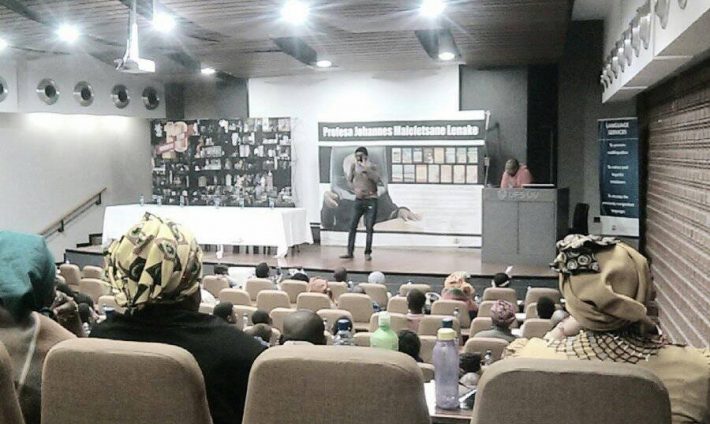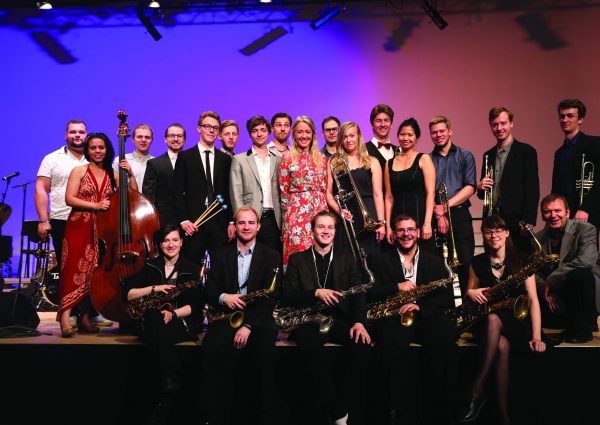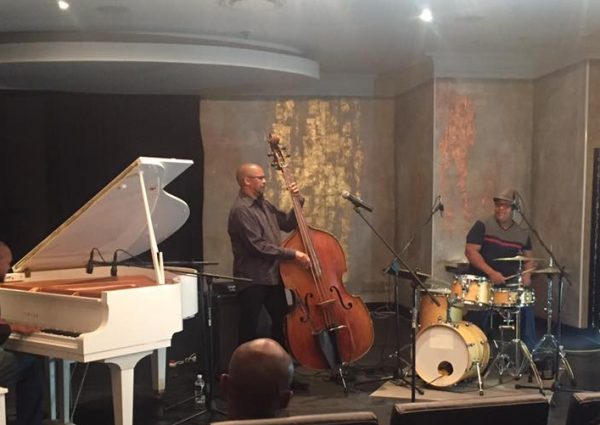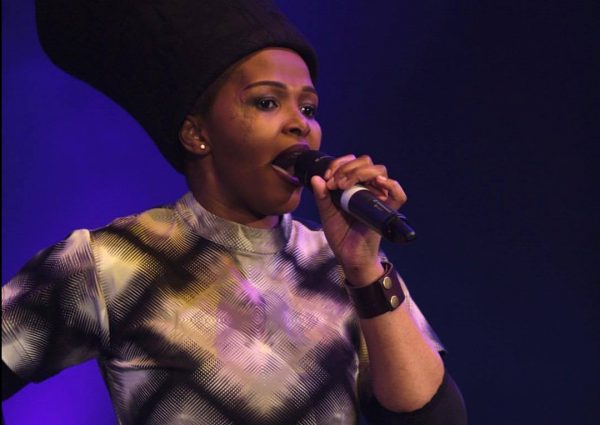Scores of writers gathered in Mangaung to mark the 10th Anniversary of Macufe Wordfest, reports Thato Rossouw
For many people across the country, the 4th of October 2017 was just another run of the mill Thursday. But for the scores of writers who had gathered at University of the Free State EBW Auditorium from 4 – 6 October 2017, this day marked the beginning of the celebrations they had planned for the 10th Anniversary of Macufe Wordfest.
Like most literature festivals, the Macufe Wordfest had in its planned roster book launches, poetry performances, panel discussions, dialogues between writers and publishers, award ceremonies for writers, and lectures by prominent people in the Bloemfontein literary scene.
Day 1: Refilwe Masamane leads the way
The first day kicked off on an unusual but equally enlightening tone. To kick things off, the audience was first introduced to the man who would guide them through the programme, and to say that he didn’t achieve his defined mandate with brilliance would be to undermine his awe-inducing work. His name is Refilwe Masamane, and not only was he responsible for steering the Macufe Wordfest ship with valour, wit, and a brilliant sense of humuor, he is also a published author of three books himself, namely: O Tswa Kae Ngwaneso, Never Give Up, and Dusty Streets.
Unlike with other literature festivals claiming to have decoloniality agendas without much decolonisation, Macufe Wordfest was different in that it took a radical decision to conduct its entire programme in Sesotho.
So, throughout the entire festival, all discussions, presentations, and book launches were done in Sesotho. It’s a decision that would set them apart from the humdrum of festivals that have popped up over the past couple of years, and it’s also a resolution which, if executed correctly, has the potential to shift literary boundaries in the country.
The first part of the show was a book launch, which was followed by an opportunity for the masses to recite whatever story they might have brought to the event, and that’s where the power of words took over.
Poetry from nervous school children, published and unpublished authors, and seasoned praise singers reigned supreme in the auditorium, and that small space was transformed into a celebratory explosion of word and sound that was carried out in a manner that bordered on the spiritual.
In between those very long and explosive episodes of literary celebration, highly informative and helpful workshops were held for the benefit of the young and unpublished writers. One such workshop was the Creative Writing Workshop that featured sections on how to write novels and radio plays, and was led by a group of highly successful writers and academics of literature.
Another session that also proved to be informative, especially for the unpublished writers in the audience, was the one given by Via Afrika about their “Write Publish Read Program.” The programme, explained the presenter, is one that Via Afrika, a publishing company that deals with educational material, decided to adopt in an effort to help get more young South Africans reading.
Through it, the company hopes to create more readers in the country by getting more young people writing books of their own. They will do this by allowing young people to write and publish their own online books through their system, and help them sell and market the books once they’ve done so.
Day 2: keeping Sesotho literature alive
The second day of the festival began on an even higher note. As if they were people who had never left the auditorium, the audience members, whose numbers were supplemented by the arrival of even more lovers of words from across the Free State Province, continued their celebration of language in the same way they did the day before.
This time, though, members of the audience who had successfully published books were also given platforms to launch and speak about the books they had written. Many of the writers who took up this opportunity were poetry writers who, during their launches, also read from their anthologies.
A small number of the books that were launched as a result of this open invitation were books written in English, while a majority of them were ones written in Sesotho. This proved to be welcomed by the organisers of the event, since one of their goals is to get more people publishing books written in their mother tongue.
A highlight of the festival, though, was a discussion held between Professor J.M Lenake and a number of other writers, publishers, and academics about the professor’s role in the development of Sesotho literature. Professor Lenake, whose work includes “The Poetry of K. E. Ntsane” and “Dinotshi” amongst many others, spoke about the importance of preserving language, and how that preservation could be used to preserve culture. He reminded them of the important role of writers in society and pleaded with the gathered young writers to not shun their languages for the more seductive English language.
His session, while loaded with information, was more of a baton handing over ceremony than it was a discussion, and it succeeded in leaving many of the writers with a deep desire to continue their efforts at writing in their mother tongue. And, as if in an act of pure poetry, his session was then ended off with a celebration and handing over of presents to younger writers who have done their part in helping to preserve Sesotho literature in the modern days.
Day 3: we meet to part
Unlike the first two days of the festival, the last day of the festival started on a much gloomier note. Signs of fatigue were written all over the faces of the people who had gathered in the auditorium, and a sadness brought by the impending goodbyes they would have to say to their newly made friends hung in the atmosphere like a dark cloud. But, even with the impending goodbyes and the high level of fatigue, poetry and song remained the fuel that kept them in high spirit, and each of them was served in sundry.
Having successfully steered the ship for the past two days, our valiant captain handed over the duties of steering the Macufe Wordfest ship to the organisers of the event, who then thanked everyone present for taking the time to celebrate words and language in the manner in which they did.
Without a shadow of a doubt, the three days of Macufe Wordfest left in those who attended an indelible mark. The ten year celebration established the festival as one to look out for. It established it as one that, if cared for, will help keep Sesotho literature, and hopefully literature from other languages, alive and kicking.
Thato Rossouw is the Senior Writer of ART STATE. Follow @Thato_Rossouw on Twitter.
FEATURED IMAGE: Audience attentive at the Macufe WordFest. Credit: Sourced







Puseletso Meshack Mapane
I wish to be part of Macufe writer visitor this year. I’m one of the up coming Sesotho writers. Two of my books are taken by Department of Art and Culture Free state. Kereke e ya tjha Short story book and Thootse ya Makholokoe a novel.